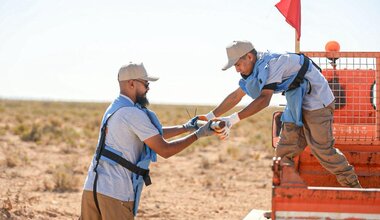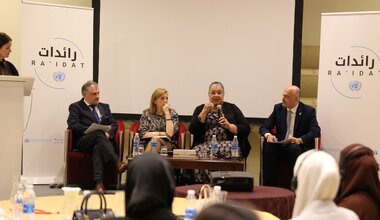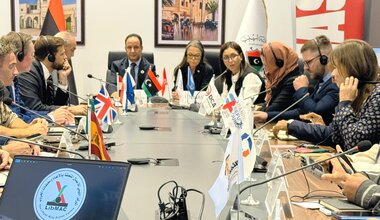Online consultation: Kufrah youth raise concerns about representation and marginalization
TRIPOLI – Fourteen youth from Kufra joined an online consultation Monday about young men and women’s challenges and recommendations as part of the ongoing public consultations for the United Nations Support Mission in Libya’ political process.
“We lack representation in the House of Representatives currently,” explained one participant, highlighting that of the three members representing Kufrah, only one was elected and the others were appointed. “They have not done anything for us and we are marginalized. We have seen nothing concrete from them.”
Another added that those living in Kufrah suffered like they were from a third world country.
Participants spoke of the need for a national youth conference to hear all voices across the country equally.
“It is hard for youth in Kufrah to participate to travel so we cannot participate in most initiatives, especially young women,” one participant said.
Many expressed distrust in the current electoral commission, saying that the country needed a fair and transparent election authority to oversee elections. Many felt that some HNEC decisions had been detrimental to cultural components and had prevented them from engaging in elections.
“We need political stability and security,” another participant said. “Without these we cannot advance.”
Others agreed, adding that the current entities all needed to be dissolved.
Another participant highlighted the challenges faced by holders of administrative numbers, which are given to people of undetermined legal status in the country, saying that it further marginalised people in Kufra – particularly migratory cultural components, many of whom are stateless.
“We need to ensure that they can be included in the electoral process,” they said.
Another participant argued that there needs to be a clear constitutional basis for elections to ensure success.
“Institutions cannot keep blocking elections if they have all agreed to a constitution,” they said. “But we also need a national dialogue that is without exception—everyone, all groups, should be included. It should be composed of all Libyans to reflect everyone’s aspirations.”
Most participants expressed their support for both Option 1 and Option 4 of the Advisory Committee’s recommendations. In Option 1, the Advisory Committee suggested near simultaneous presidential and parliamentary elections, followed by the adoption of a constitution. In Option 4, the Committee suggests activating the dialogue mechanism and replacing existing institutional stakeholders with a constituent assembly in line with Article 64 of the Libyan Political Agreement.
 United Nations Peacekeeping
United Nations Peacekeeping UN
UN









